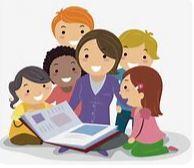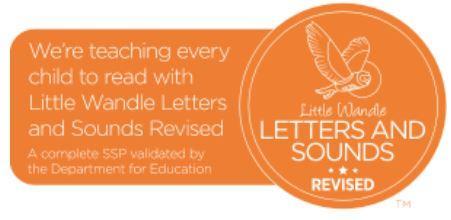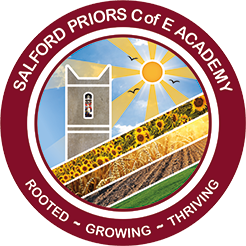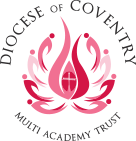English - Reading (including Phonics)
Salford Priors CofE Academy English Policy
 Who can I speak to about Reading? Your child’s class teacher will be able to answer any questions about your child’s reading. You can find detailed information in our English Policy above, and a summary below.
Who can I speak to about Reading? Your child’s class teacher will be able to answer any questions about your child’s reading. You can find detailed information in our English Policy above, and a summary below.
Early Reading - including Phonics
 Salford Priors CofE Academy has chosen Little Wandle Letters & Sounds as its programme, validated by the DfE, to deliver effective and systematic, synthetic phonics. The teaching of high-quality phonics underpins the core skills of both reading and writing. Phonics is taught in small groups through a structured, fun, interactive programme which follows the progression of “Little Wandle”. Children are taught how to segment and blend words for both reading and writing. From an early age, children use the correct terminology such as phoneme, grapheme, digraph, split digraph. Please follow this link to the 'Little Wandle' website which gives more information and support for parents. This includes videos on how to pronounce the sounds your child will be learning.
Salford Priors CofE Academy has chosen Little Wandle Letters & Sounds as its programme, validated by the DfE, to deliver effective and systematic, synthetic phonics. The teaching of high-quality phonics underpins the core skills of both reading and writing. Phonics is taught in small groups through a structured, fun, interactive programme which follows the progression of “Little Wandle”. Children are taught how to segment and blend words for both reading and writing. From an early age, children use the correct terminology such as phoneme, grapheme, digraph, split digraph. Please follow this link to the 'Little Wandle' website which gives more information and support for parents. This includes videos on how to pronounce the sounds your child will be learning.
Reception children receive daily key sessions of Phase 2 phonics as soon as they enter the year. They start on Phase 3 letters and sounds after Christmas (e.g. digraphs such as oa, oo, ea ) and then Phase 4 in the Summer term. Children in Year 1 work on Phase 5 letters and sounds. Year 2 pupils focus on consolidating knowledge of blends and clusters and revising phase 5 sounds. They also recap on learning alternative spellings for each phoneme and learning the spellings of common exception words.
Some children in Key Stage 1 or 2, who for various reasons might not have passed the Phonics Screening Test (taken by all pupils in Year 1), might need to receive continued targeted phonics support (Rapid Catch Up) to help them with both their reading and writing.
Information sessions are held at the beginning of Autumn Term, and again at the beginning of the Spring Term, for parents/carers of Reception children to show how we teach phonics and to demonstrate how children can be supported at home with their learning of phonics.
Year 1 children take the national Phonics Screening Check at the end of the academic year to assess if they have reached the required standard in phonics. Children who do not pass the test will receive extra phonics support (Rapid Catch Up) in Year 2 and re-sit the check at the end of the year. Occasionally, this support might need to continue into KS2 until they are secure with their phonics knowledge and application.
Early Reading Books
In Reception, we start off with wordless books. Children then move to books with words after they are secure with some Phase 2 sounds and are able to segment and blend words with previously taught sounds in them. Children in Reception and KS1 take part in 3 group reads a week focusing on 'decoding', 'prosody' and 'comprehension'. The books that children read are matched to their phonics ability and are all fully decodable. The children then take this reading book home to share with parents/carers. Children also choose a 'sharing book' each week to take home for parents/carers to read to them in order to encourage reading for pleasure and to help develop children's vocabulary.
Reading in KS2
The school has a three-pronged approach to reading that includes:
Whole class reading
Guided reading (learning new vocabulary and developing key reading skills)
Individual reading at home and school
Whole class reading is practised in English lessons and complex texts are chosen, with elements that will challenge readers at all abilities within each class. All children read out loud to their peers and their class teacher during whole class reading. Children with special needs, disabilities and/or English as an additional language are supported in various ways to optimise their exposure to these rich and challenging texts (chosen through consultation with an English advisor). These texts for the stimulus for our writing activities in English and are chosen to ensure a range of text genres (including fiction and non-fiction), authors, and prompts for a variety of purposes for writing.
Four guided reading sessions take place each week in KS2, in two pairs of two sessions. The first in each pair has a focus on developing fluency; the second on developing a key reading comprehension skill, such as inference, prediction, sequencing or summarising. Two sessions use a structured published programme with high quality text samples; the other two sessions use the class text used for writing.
For independent and home reading, the school uses a 'Book Band' reading scheme (see below). Books are banded using a colour scheme, based on a combination between the complexity of the words and themes contained within the books. While children are learning phonics, the books from which they choose are all phonically decodable (Pink to Orange). As children progress up the colour bands, the books develop vocabulary knowledge with content suitable for children growing in confidence and life experiences. Children must read two books within their colour band in order to earn a 'free choice' which is primary-age appropriate.
Book Bands were created by the Institute of Education in London c.2000. Book bands are based on clear and steady progression from wordless picture books (Lilac), the use of phonics (decodable books, Pink to Orange) and continued language/stamina development (Turquoise to Ruby with Onyx available for Year 6 children in the summer term preparing for secondary school). Book bands allow books from different publishers, authors and schemes to be placed in parallel reading stages. This adds variety, breadth and depth to the reading resources, in line with the expectations of the 2014 National Curriculum. Book bands are used to organise reading books in the majority of primary schools and by most national publishers.
Our school is fully committed to encouraging all children to read outside of school. We have set up a number of initiatives to achieve this:
Scrutiny of reading diaries
Rewarding children who read outside at home
Enlisting volunteers to hear readers in school for whom reading at home is difficult
Parent and child after-school reading events
The Reading Book Suggestions below are suggestions of books that can be read at home and/or as a 'free read' choice that are suitable for your child's reading age.

